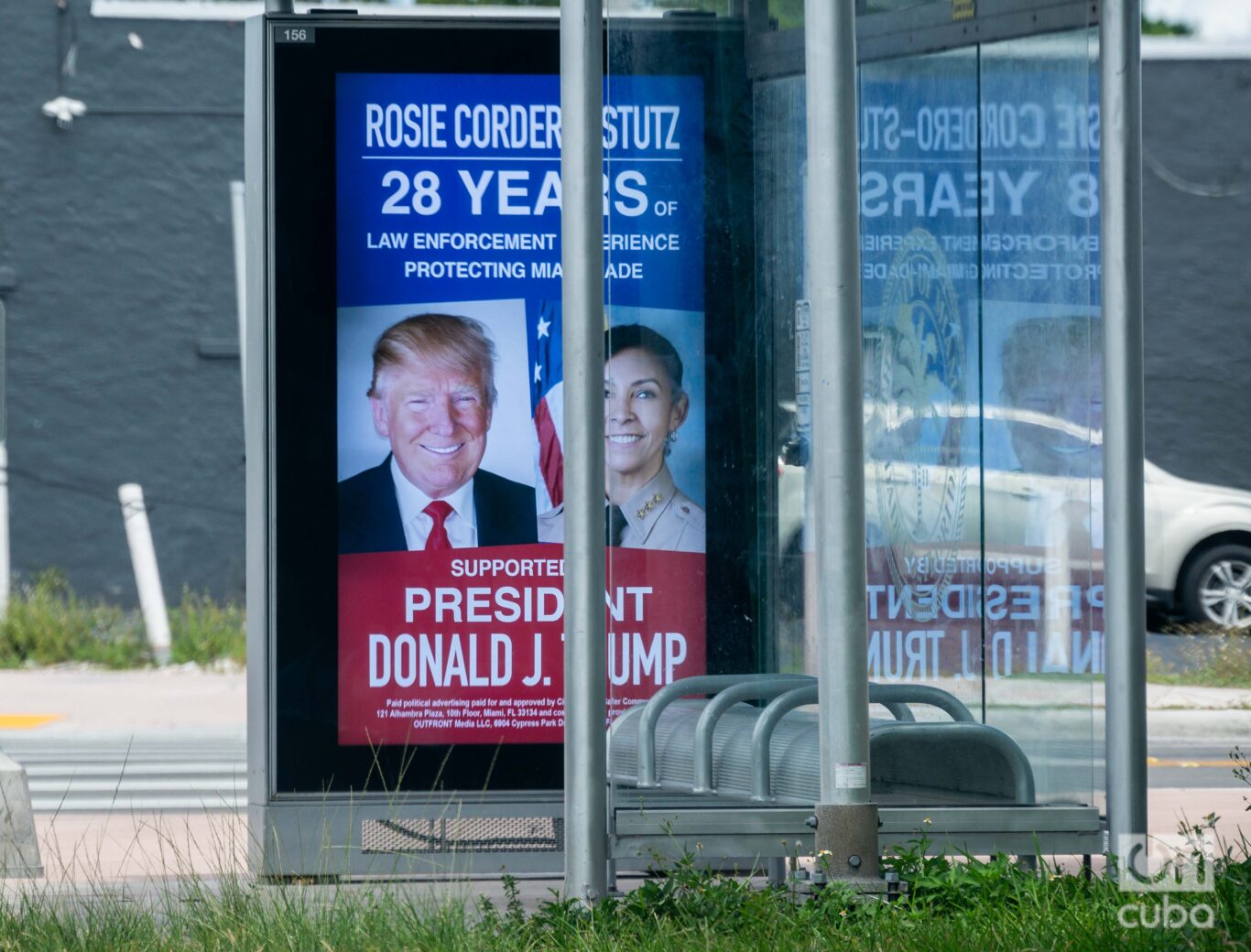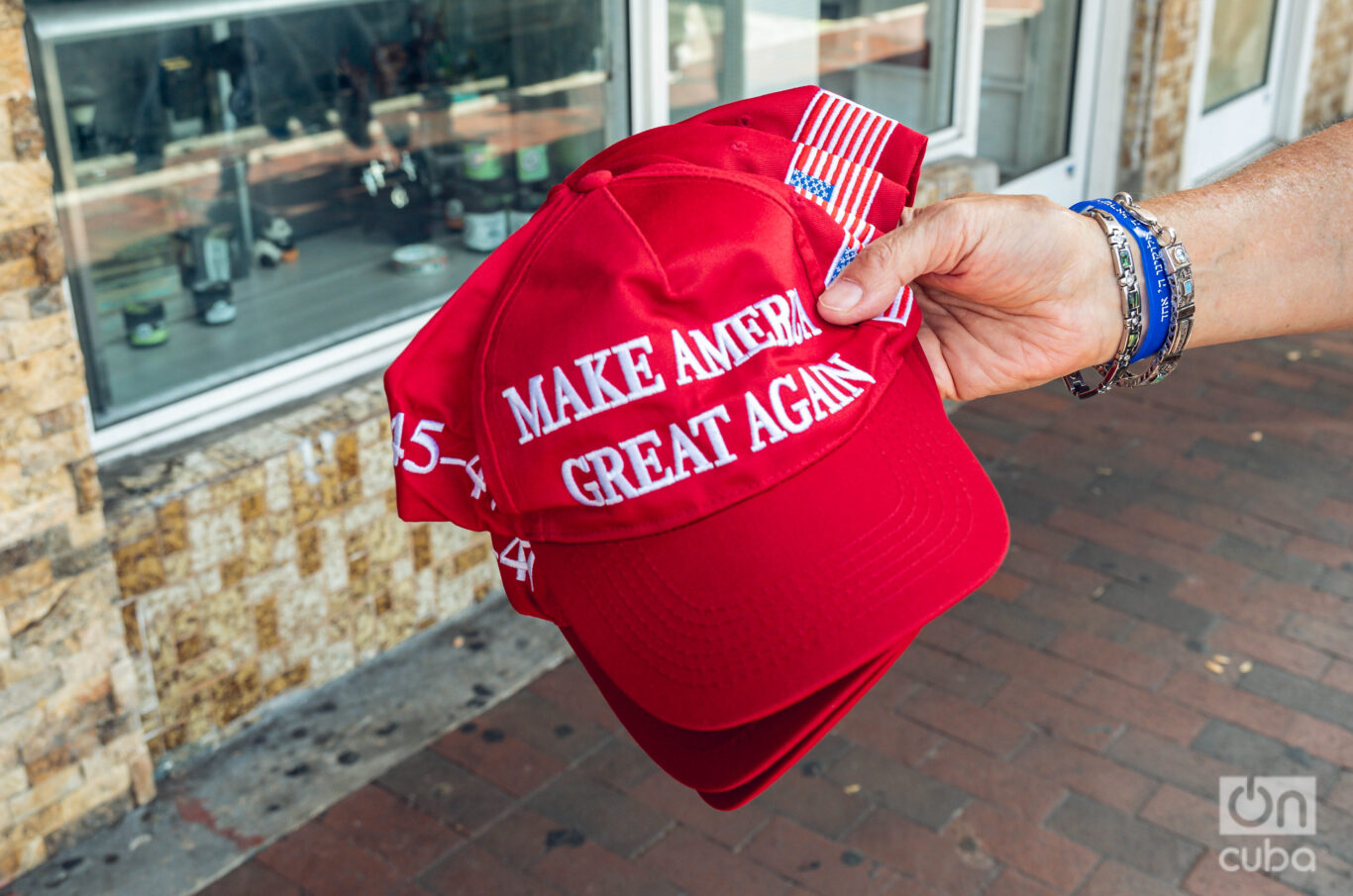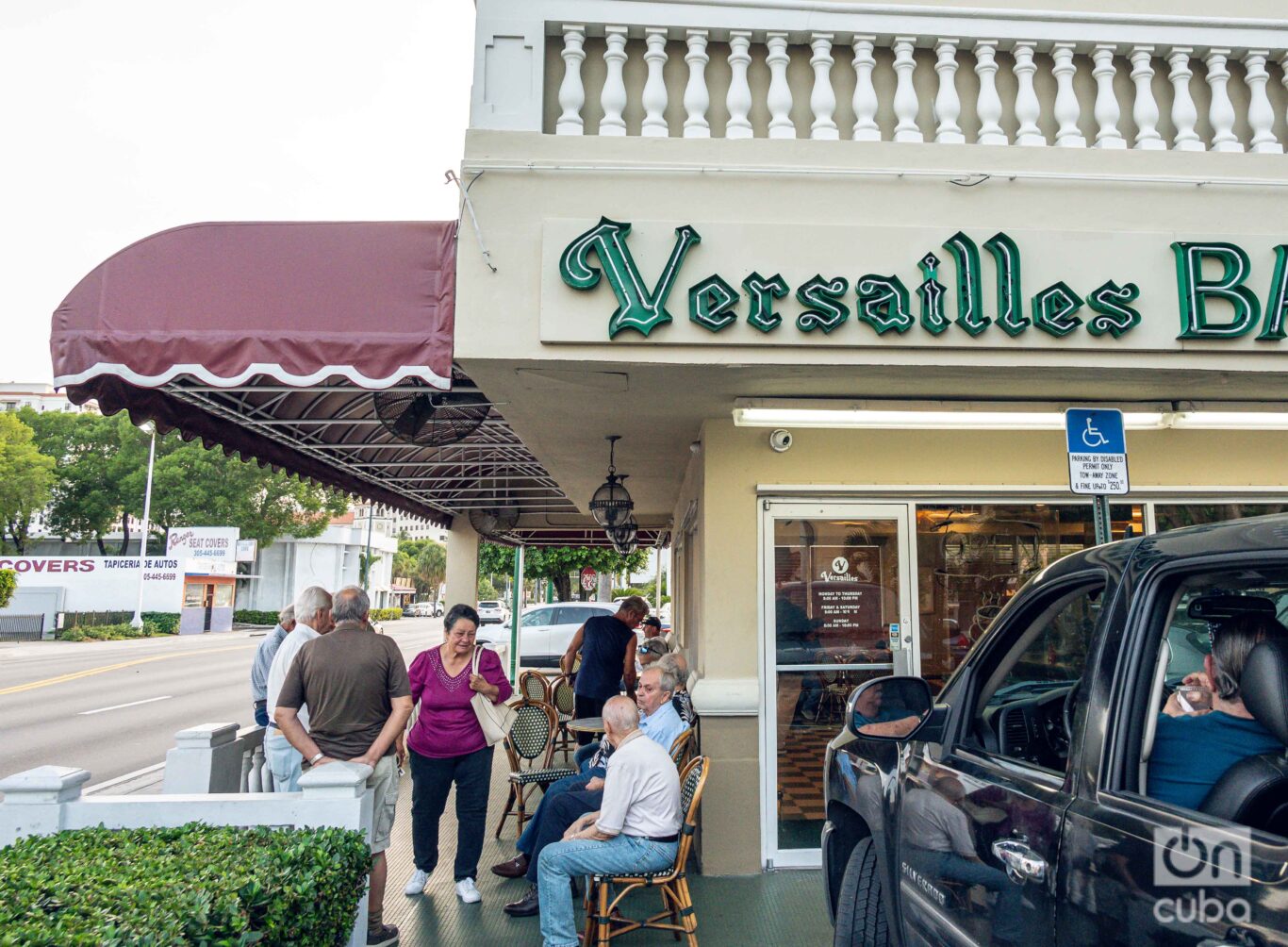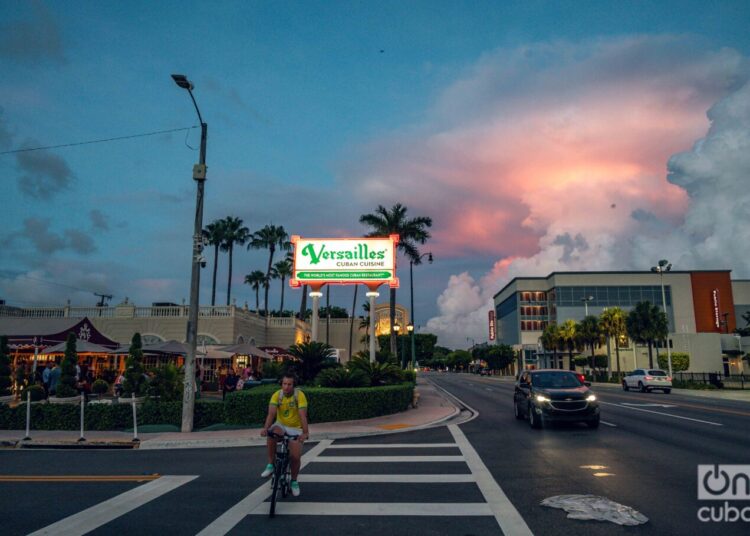How can it be explained that some Cubans, born and raised in a socialist culture, when they arrive in the United States can suddenly become fans of Trump and the Republican Party? Could it be that they have been infected with anti-communism before leaving? Is it their row with the Cuban government? Is it the ticket to enter a political culture dominated by anti-Castroism? If so, wouldn’t it be useful for them to adopt faith in capitalism, and identify with a liberal, centrist or moderate current, like most Latino immigrants? Why precisely the extreme right?
That’s where I was a couple of weeks ago, at the end of an article in which I commented on the deterioration of politics in regions as democratic and progressive as Europe, apparently unreachable by the extreme right, which has expanded in parties and civil society movements in our hemisphere during the last few years.
I will try to discuss this enigma here, putting it in a bigger context, which will help us look at it beyond our sovereign navel, instead of as a Cuban mystery. To be able to see it — as the artist Kaloian Santos would say — with a broader focus, instead of as an expression of how distinct, different and unique we are.
First of all, immigrants, just like workers, farmers, intellectuals and people from below, can share the most extremeright-reactionary ideas in the world.
According to some observers, those who come to Spain from countries with a communist past or present often do not want to know anything about the Spanish left, which they perceive as “Castroist, Chavist” and even “Ceaucescuist,” because they see it associated with “very radical” social policies.
These immigrants tend to perceive as “communist,” let’s say, the policies and laws that favor direct voting proportionality; “shield” the social rights of education, housing, health, so that they are not commercialized; determine that, the higher the income, the higher the taxes; scrutinize the judicial power to avoid favoritism. As if they did not know that the Spanish Constitution already includes all that.
But this “anti-state suspicion” is not exclusive to former socialists nor does it always depend on an extreme right-wing ideology. It also reflects immigrants’ failure to adjust, due to the way in which they are “received.”
In a previous comment I mentioned that recent immigration to Europe has exacerbated concerns about cultural clashes, economic competition and increased taxes. And I said that these reactions are grist to the mill of right-wing parties with nationalist and anti-immigration agendas, even among groups that do not align with them for ideological reasons.
This effect of alienation of immigrants is not only a response to the discourse of the right, but also, to a certain point, to other more liberal and left-wing ones, to the extent that it does not identify immigrants as part of the nation, however much they are citizens. Not only in cultural terms, but also in economic, social and political terms. Whether they have a passport or not, those born in other lands do not come to perceive themselves as European citizens, but rather continue to be South Americans, Moors, Chinese, blacks, etc. And that is how many of them feel when choosing a political side. Even if they do not come from Venezuela, Poland or Cuba, but from places as democratic as Colombia, Morocco, Ecuador, Guatemala or the Dominican Republic.
Secondly, to make sweeping judgements about all immigration arriving in Europe or the United States, and to generalize about this trend and its effects over time, would be to forget its heterogeneous nature, both in cultural and social terms.

The political position of this flow depends on the characteristics of the immigrants, their educational level, as well as the urban or rural space in which they land. According to research, the preference for right-wing or left-wing parties of those born overseas and their descendants compared to natives is comparable with the same type of preference among natives with secondary and primary education, or urban and rural residents.
Of course, second-generation immigrants are more tolerant on issues of sexual preference; they believe in multiculturalism; they favor greater integration in the EU and support government intervention to reduce income inequalities. In any case, the political orientations of their parents and themselves do not depend on primary ideological affiliations, but on interests in specific economic and social policies, beyond the immigration regulations of their countries and the EU.
My third approach concerns the context of Latin American immigrants in the United States.
Some studies on political attitudes among these Latinos show that “politics in their country of origin has shaped their level of civic participation” in the United States, especially among those “with little faith in democratic processes.” But they also highlight two factors that influence them: misinformation and the “stricter voting rules” imposed on them by voter ID requirements. The effect of this misinformation, these strict rules, and voter intimidation tactics has kept many away from the polls; or has brought them closer to the far-right agenda, as we will see.
According to the Pew Research Center, potential Latino voters, on average, are 9 years younger than the average voter in the United States. Many of them feel disenchanted and perceive political parties as more combative than constructive, so they refrain from voting. It is estimated that, for example, in North Carolina, millennials and the so-called generation Z have the lowest voting participation of any generation.

As for biased misinformation, this is spread through popular sites preferred by many Latinos, such as WhatsApp or YouTube. Although believers in the social media and their Facebook friends consider them reliable sources to form political opinions and choose candidates, studies show that, rather, they strengthen the common sense that supports the most conservative positions.
An example of how these opinions induce a bifurcation between interests and electoral decisions is that of school security versus the freedom to bear arms. Although polls show that many Latinos are concerned about the increase in violent incidents in schools, the relaxation of gun laws promoted by Republicans is not reflected in the loss of votes among these immigrants.
Many Latinos, particularly from border states such as Texas, have different attitudes towards legal (regular) and illegal (undocumented) immigrants. While they support the arrival of the former, many reject the latter, not only attributing to them unfair labor competition, but also increased social security expenses, higher taxes, as well as greater insecurity and crime.
As in Europe, the immigration issue is not the only one that interests them, but also those that affect traditional and religious values, such as the right to abortion. According to a 2022 Pew Research Center study, 57% of Hispanics believe that abortion should be legal in all or most cases. The data contrasts with 62% in favor of the general public in the United States, which would reveal a more conservative bias.

Although the majority voted for Biden in the midst of the pandemic, support for Trump increased in 2020, especially among those who prioritized economic issues. As I pointed out, although they generally support a more flexible immigration policy, they are wary of the side effects that the undocumented wave would supposedly be causing them.
How does all of the above relate to Cuban immigrants and their political attitudes?
According to the U.S. Census, 81% of Latinos have become citizens, can vote and be elected. However, of the 1.3 million Cubans by birth who reside there, only 67% are citizens. Despite the fact that more than half of all of them have lived there for more than 20 years as permanent residents.
The FIU survey, the most recognized database for the study of political opinions in the Cuban-born population since 1991 (whose update could perhaps occur in the next few days), shows some apparently paradoxical results. Although all of those of “Cuban origin” (born in Cuba and the United States) moved to the right in some of their positions towards Cuba compared to the surveys in the Obama period, in other topics they reflected attitudes inconsistent with the Miami extreme right. Only a third declared themselves opposed to the blockade, but two thirds considered it ineffective, and the vast majority favored the sale of food and medicine; three quarters favored the policy of regime change, but an absolute majority supported diplomatic relations, acknowledged having relatives and friends on the island, almost half sent remittances and even supported visits by Americans to Cuba, and massively supported the granting of visas and facilities for family reunification.
With these demographic considerations and data in mind, we could close our approach: to what extent and why do the most recent Cuban immigrants identify with the far right, ideologically speaking? I will first share the reflections of some researchers who study this issue on the ground.
Guillermo Grenier, director of the FIU survey, points out that, over the last twenty years, it reveals that the majority of Cubans do not declare that they migrate for political reasons or “in search of more freedom.” However, ideological socialization assimilates the newcomers to an intransigent political culture, which remains tied to the Cold War mentality towards Cuba. The new immigrants will hardly moderate “the political bloodlust of their compatriots from South Florida,” since the determining factor is “the power of conformity in that political socialization.” A bottom-up change would require “two or three generations,” so it could only come “from the leadership of the White House: if a policy toward Cuba is built based on national interests, Cuban Americans, whether newcomers or old residents, will join in.”

Addressing the problem in a Temas workshop a little less than a year ago, historian Michael Bustamante, professor at the University of Miami, pointed out that the Republican mutations of Cuban migrants who have arrived in the United States in recent years were not predictable, if one takes into account the trend between those who arrived in 1995-2015, some 600,000, and those of the second and third generation. The surprising thing is that the drivers of this change are the same immigrants who had supported the Democrats and a new policy toward Cuba, now turning to the Republican side, and increasingly the newcomers, in 2019-2023. He added that traveling to the island, sending remittances, or exploring opportunities, are not incompatible with voting for Donald Trump or supporting other sanctions, nor is repatriating to keep the family home; nor does it entail closeness to the Cuban government.
Other sociologists with whom I have spoken to write this article attribute the empathy with the extreme right to the fact that these Cuban migrants are accustomed to polarized, black and white visions, associated with leadership and “authoritarian personality.” Reaffirming their decision to emigrate, it is explained that they reject the prevailing ideological codes in Cuba, and embrace those from the other side, including the flag and extreme right-nationalism of the adopted country, in the way that Russian Jews who emigrated to Israel nourished the ranks of the Likud party. Finally, they agree on the coupling factor with the prevailing discourse in Miami, which punishes those who try to navigate against the current, and rewards those who adopt it with a better welcome.
They emphasize that the new immigrants are landing in a Cuban-American society in which the Republican right has a letter of identity because that party has applied a cultural policy of proselytism more effective than that of the Democrats. This includes an “alternative history” of Cuba, by virtue of which immigrants learn “the truth of the Revolution and of relations with the United States,” very different from what they were taught in Cuba. Finally, some point out the leap of those who went from being socialists or progressives in Cuba to anti-Castro militants on the social media, to meet, consciously or unconsciously, the expectations of those who welcome them, and to smooth the way for their professional careers.
Sharing this tight summary of diagnoses and reflections on the subject, I will add a handful of telegraphic notes on the side, with my comments and nuances.
Immigrants always arrive in a new and shifting context — politically and culturally — to which they are forced to adapt. As scholars of other migrations argue, the predominant economic and family reasons do not exclude ideological ones from staying. However, it is one thing to repudiate the government of the country of origin and another to align oneself with the global far right, just as voting for an extreme-right candidate does not imply sharing their ideology.

As we have seen among Latin Americans who arrive in Europe and the United States, this alignment does not have a key ideological gene, but rather responds to interests, within a changing context.
As for the changes over time recorded by the surveys, the incongruity has been in their peculiar logic for a long time. So supporting the use of military force against Cuba coexists with the freedom to travel, send things and invest. Since bombing and being able to go to Varadero are mutually exclusive options, one of the two supports must be “truer” in practical terms.
In an article four months ago, I analyzed the great difference between the 1.1 million Cubans born there and those of the historic exile (1959-73). These Cuban Americans — without a hyphen — maintain very different criteria than their parents regarding relations with Cuba, even when they do not vote for Democrats or sympathize with Marco Rubio. In fact, other research shows that the electorate of Cuban origin does not vote for any candidate based primarily on their position toward Cuba.
Although I am not a believer in surveys, if I could design questionnaires to determine the attitude and effective political culture of an immigrant, I would not ask them so much about who they are going to vote for. Rather, if politics is useful, if voting is worthwhile, if they believe in other ways to control the government, why they would or would not want to acquire another citizenship, if they would join an existing or hypothetical party, if they get informed by reading or watching TV or social media, if they like the idea of being able to buy weapons, if they approve of any right-wing or left-wing party being legal, that the poor do not pay for education or health, that women can decide on abortion, that the Constitution is based on a religious faith, that undocumented people are protected by law, if they consider themselves Latino or Caribbean and what color, if any religious creed is superior or inferior to the others, if they could choose the best country to live in, which one would it be. From there you could determine with more reason if their political culture and ideology coincide with those of the extreme right.
If I could, I would do the same research on this side. The comparison would give plenty to be said about that.










